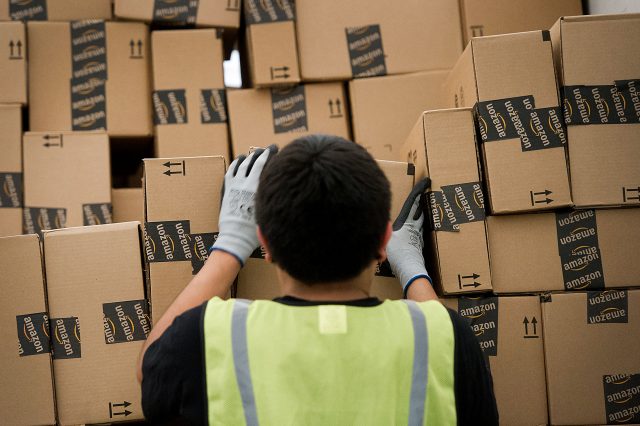
After 24 years of operation, Amazon passed a market value of $1 trillion yesterday. It is the second company to reach that arbitrary milestone; fellow tech giant Apple became the first only a few weeks ago. Amazon's value has fallen slightly below that threshold since, but its continued growth is likely, according to most analysts.
Founded in 1994, Amazon initially sought simply to launch an online storefront for books to challenge Barnes & Noble and other big book retailers. The company went on to build one of the world's most advanced logistical operations to fuel a broad-ranging e-commerce business. It has also offered a wide range of digital content, purchased major media properties like Twitch, and released its own tablets and smart-home hardware products.According to the The New York Times, Amazon "captures 49 cents of every e-commerce dollar in the United States." Its market value is greater than those of the 10 biggest brick-and-mortar retailers combined.
Yet the company is not as profitable as Apple. Amazon posted only $3 billion in profits in 2017, compared to Apple's $48 billion. Amazon was valued at just $580 billion at the start of 2018. Throughout this year, Amazon has emphasized profits more than it did in the prior year, which has encouraged the company's dramatic rise in value.
Investors who are betting on Amazon are doing so not so much based on the company's current position—though that position is strong. They're betting that Amazon will become even more successful in the future, with its promises of drone deliveries, cashier-free stores, artificially intelligent personal assistants, and digital-content dominance.
For now, though, Amazon's profits and improving margins are driven more by Amazon Web Services than the wild new ideas. Not all of its futurist visions will come to pass, but investors seem confident that enough of those visions will become reality to make their investments worthwhile.
reader comments
143